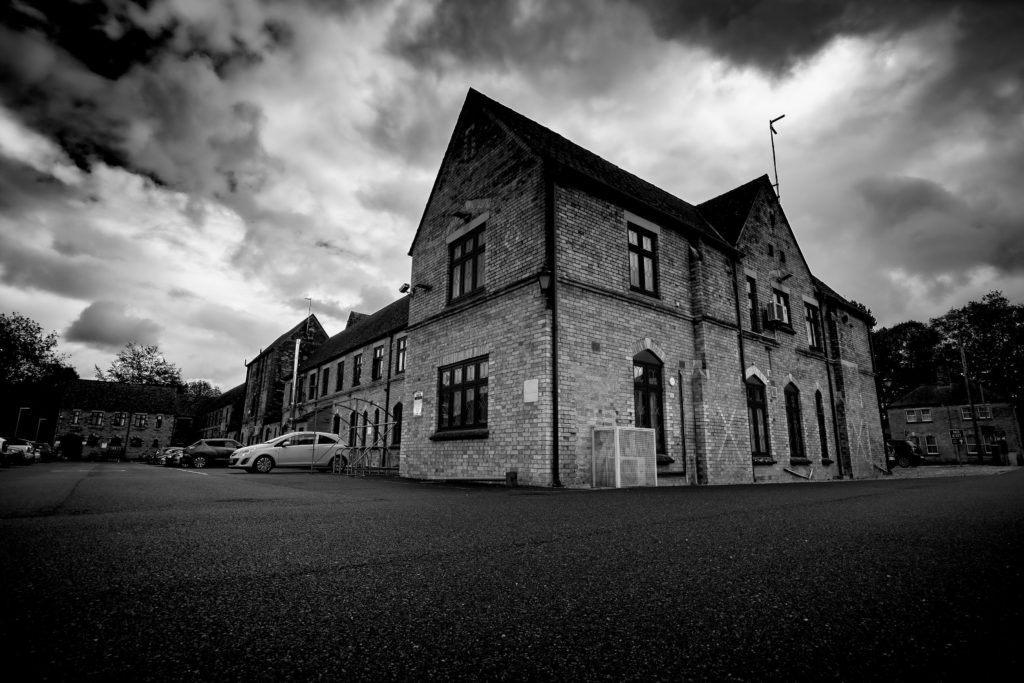
Alan Helsdon writes:
Monday January 9th – King’s Lynn Union
Vaughan Williams probably walked to the workhouse after lunch and the shortest route would have been through the large open space known as The Walks, after which a short walk along a narrow street brought him to the impressive building on Exton’s Road, just fifty years old and the largest civic building in Lynn when new. Mr Huddle may well have sent a note earlier that morning to the Revd Hayes, Chaplain to King’s Lynn Union, to arrange for Vaughan Williams to be met and introduced to the inmates, but we do not know for sure. This may have proved invaluable as the inmates might well have been rather suspicious of strangers, especially those preparing to take notes. If, however, the Master, Mr Barnett, had introduced him to the men in one of two ‘Old Men’s Day Rooms’ and if, as was we know happened at least once, Vaughan Williams had given Mr Crisp a shilling for the first song, Dream of Napoleon, things may well have then gone smoother.
Mr Crisp was an ex sailor who had been in the Workhouse since 1899. Just two months after Vaughan Williams’ second visit to King’s Lynn in September 1906 he was, according to the Workhouse records, ‘Allowed out on leave; was entrusted with two overcoats to bring to the workhouse; instead of doing so he stole them by selling one and trying to sell the other.’ He was arrested on suspicion and charged by the Master of the workhouse, being sentenced to one month’s hard labour. Therefore such phrases as ‘sad and languid’ and ‘methought I was traversing the billow’ may sound strange coming from his mouth, but Vaughan Williams duly noted three verses.
Mr Leatherday was next to have a song noted On Board a Ninety Eight or On Board at Ninety Eight, and into the new manuscript book it went, with just a couple of variants of the tune and no words. This tune appeared within 18 months in the first Norfolk Rhapsody. Mr Woods was the next to perform for his shilling, Napoleon’s Farewell, followed by Spurn Point from Mr Leatherday. Spurn Point was, about 60 miles from where they were sitting, and possibly assured Vaughan Williams that it was a true story.
Mr Crisp then sang two more; Bold Princess Royal and The Loss of the Ramillies. Mr Crisp clearly had no problems with the words of this tragic tale and six verses of what might be the second rarity of the week were soon jotted down.
Tuesday January 10th – King’s Lynn Union
Mr Chesson started procedings in the afternoon with two songs and then disappeared, never to be seen by Vaughan Williams again; Erin’s Lovely Home and Raven’s Feather, which Vaughan Williams knew as The Imprisoned Lady from one of Baring Gould’s collections – Songs and Ballads. Mr Leatherday’s Creeping Jane was one of the first songs Vaughan Williams had noted and despite some problems with the rhythm was soon written out, though the words of only two verses were taken. Mr Cooper sang the very common Irish Girl, but didn’t offer to sing again, and he departed, leaving Mr Elmer to perform two songs before he too left. They were The Lady and the Sailor and Hares in the Plantation, the former of which he knew as the Nightingale and the latter from Baring Gould’s collection again. He got the two simple melodies written easily and noted one verse of each. Mr Crisp’s Hills of Caledonia was new to him and he noted the Dorian melody with a couple of variants and took down all four verses. His next was another version of the well-known Three Jolly Butchers which was quickly noted.
Wednesday 11th Jan 1905
As the inmates of the Union House were being treated by a Miss Pope and her brothers to a meat tea this afternoon, followed by an entertainment in the evening, he is likely to have made his visit in the morning when Messrs Crisp and Leatherday were again sent for and sang two songs each.
September 1st 1906
Ralph spent a day in King’s Lynn on Saturday 1st September, noting 10 songs from Messrs Elmer, Crisp, Leatherday, Carter and Donger and presumably visiting both the North End and the Union in the process, but we have even fewer details of this visit than of January 1905.